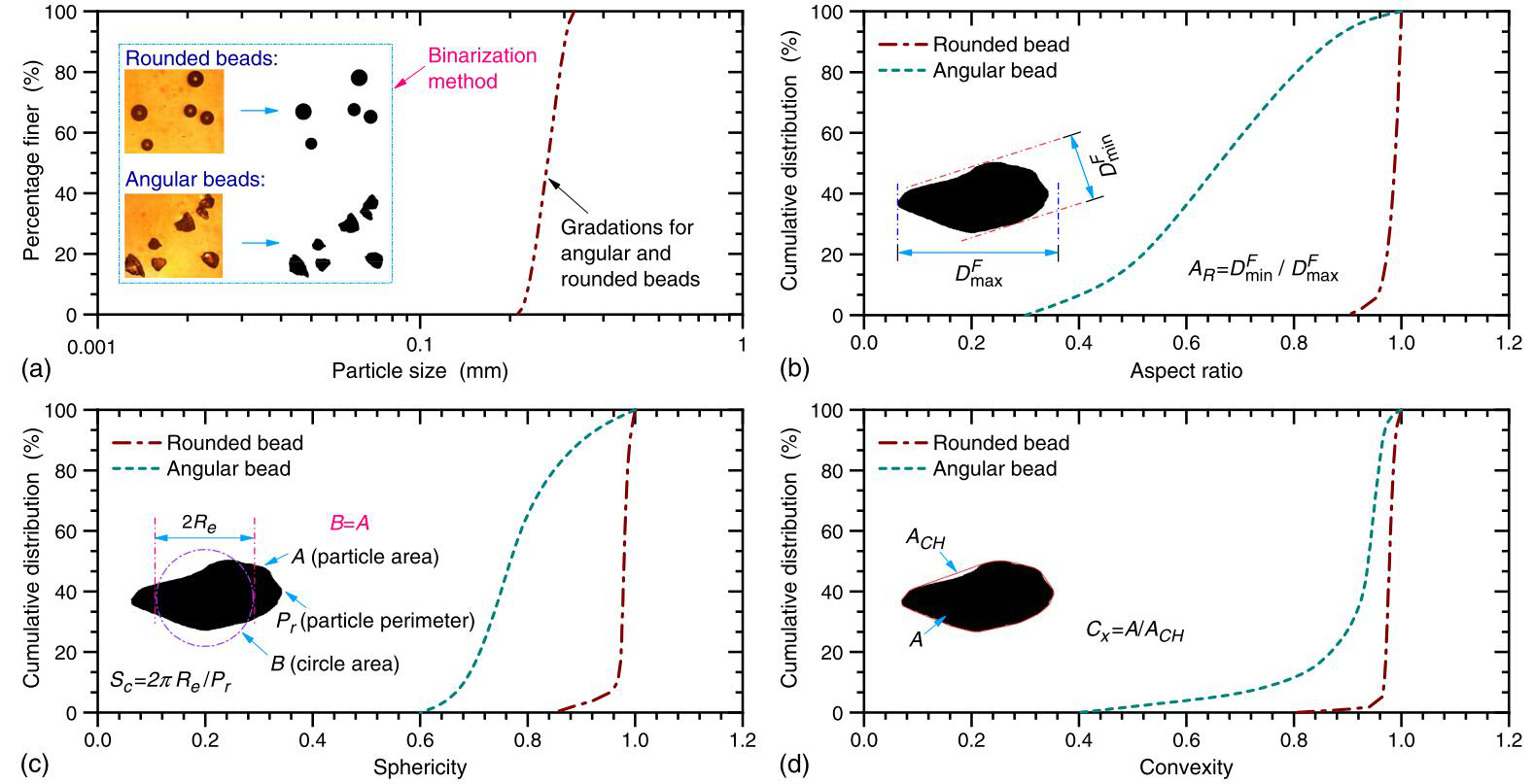Xiao Yang, Stuedlein Armin W., Ran, Jinyu, Evans T. M., Cheng, Liang, Liu Hanlong, van Paassen Leon A., Chu, Jian. Effect of Particle Shape on Strength and Stiffness of Biocemented Glass Beads. Journal of Geotechnical and Geoenvironmental Engineering, 2019, 145(11): 06019016.
Keywords: Microbially induced calcite precipitation; Particle shape; Unconfined strength; Overall regularity.
High Lights:
Abstract:
Microbially induced calcite precipitation (MICP) has attracted significant attention as a promising in situ ground reinforcement method, particularly for the improvement of existing structure foundations. Prior to its widespread application, further study is required to answer questions that seek to improve understanding of the fundamental mechanisms of cementation. This paper focuses on the influence of particle shape on the stiffness and strength of MICP-treated glass beads through a series of unconfined compression tests. The concept of combined overall regularity was used to quantitatively evaluate the particle shape of five mixtures with different proportions of rounded and angular glass beads. Increases in the combined overall regularity resulted in significant decreases in the unconfined compressive strength and secant modulus at 50% unconfined strength, particularly for specimens with greater cementation, but a slight increase in the calcite precipitation. This validates that it is the calcite-bridging formation between particle contacts that primarily contributes to the strength increase observed in MICP-treated glass beads.
Resource:https://doi.org/10.1061/(ASCE)GT.1943-5606.0002165
